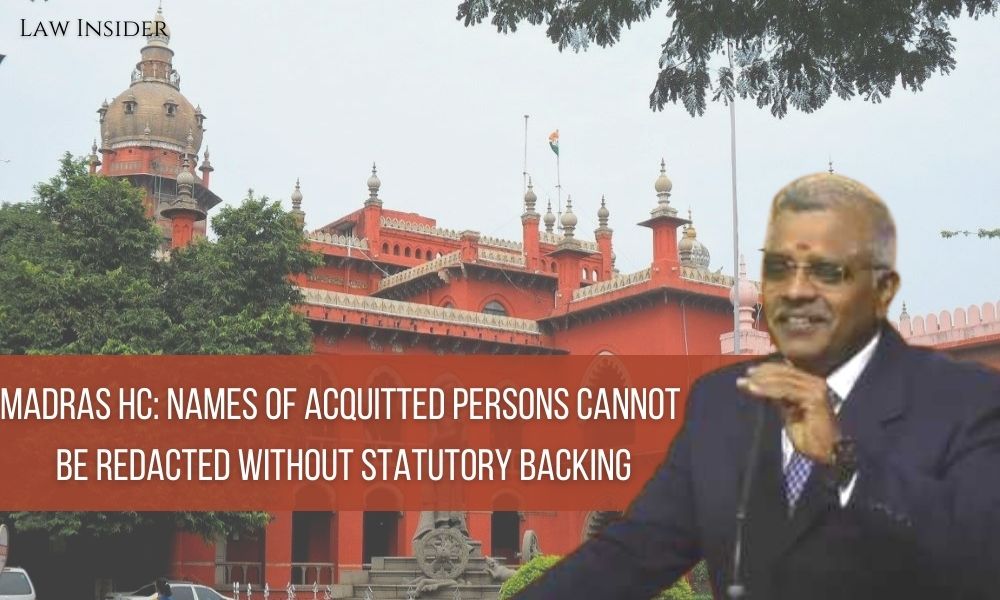Shivangi Prakash–
Published on August 03, 2021, at 4:54 PM
The Madras High Court has declined to redact the identity of a person who was cleared of all criminal accusations leveled against him from court records, despite the fact that such a request is now legal in India.
While refusing to provide relief to the Petitioner who had sought enforcement of his right to privacy, Justice N. Anand Venkatesh observed,
“This Court honestly feels that our criminal justice system is yet to reach such standards where courts can venture to pass orders for redaction of name of an accused person on certain objective criteria prescribed by rules or regulations.”
It stated that the “right to be forgotten” could not exist in the realm of judicial administration. The sole exception, it pointed out, is in situations of rape and other sexual offences, when the Supreme Court has ordered that victim’s identities not be revealed.
The Judge added, “In the absence of any statutory backing this Court cannot undertake the exercise of issuing directions when no judicially manageable standards exist in the first place. There must be a proper policy formulated in this regard by means of specific rules.”
The order came in response to a petition filed by a man who was previously charged with cheating and rape under Sections 417 and 376 of the Indian Penal Code (IPC), but was later acquitted of all charges, and asked the High Court to remove his name from the Court’s Judgement.
Although he was acquitted of all charges, the petitioner claimed that anyone who types his name into a Google search can obtain the relevant judgement, in which he is listed as an accused.
This is a huge impediment to his reputation thus he asked the Court for permission to redact his name from the relevant judgement.
The Court noted that there is no statute in India that contains a “right to erasure” like the EU’s General Data Protection Regulation.
The Court observed, “In the absence of any statutory backing this Court cannot undertake the exercise of issuing directions when no judicially manageable standards exist in the first place.”
The 36-page judgment delivered by the Court also briefly delved into the ambit of open Court systems and public access to judgments of Courts.
Click here to Read/Download the Judgment
Also Read: Madras HC: Complete Sexual Assault Trial against Special DGP by December

